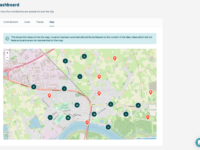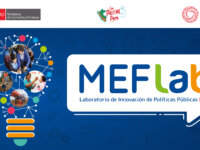In Peru, the lack of systematic evidence hinders efficient budget allocation and innovative public policy. The MEFLab addresses this by conducting experimental evaluations of programs and policies that benefit the Peruvian Ministries and the citizens through improved public services. The lab's innovation lies in using existing evidence, creativity, and collaboration to design new public policy solutions and promote evidence-based decision-making.
Innovation Tag Opengov: evaluation
Bağcılar Municipality has implemented an Algorithmic Decision Systems model for evaluating public services to maximizing the value proposition and satisfaction level at the minimum cost. This model enables the municipality to make decisions regarding the investment worthiness of its current and planned services and activities, as well as the direction of improvements needed in existing products and services, both in the eyes of stakeholders and the organization.
Case Study
Monitoring and participatory evaluation of the National Strategy to Combat Poverty 2021-2030 (ENCP)

As part of the National Strategy to Combat Poverty (ENCP), PlanAPP is piloting a participatory monitoring and evaluation (M&E) model. This model involves designing mechanisms for participation in collaboration with social sector organisations. Following this, individuals living in poverty will participate in the M&E process of the ENCP from its inception. The goal is to enhance the development of well-informed and contextually relevant public policies, foster a culture of participation, and…
Alice, a bid, contract and notice analyser, emerged to address critical challenges in public procurement, whose processes present vulnerabilities, risks of fraud and errors. Alice supports public purchases and promoting efficiency in procurement. In 2023, Alice analysed 190,923 acquisitions on the main public procurement portals. The analyses, timely identification of inconsistencies and alerts to auditors generated 203 audit jobs worth a total of R$27 billion. Preventing errors or fraud with…
Case Study
Monitoring of the Implementation of the Access to Information Act in the Federal Executive Branch
With the maturing of the Transparency Policy in the Brazilian Federal Executive Branch, there was a need to broaden the assessment of the implementation of the Access to Information Act. The innovation here lies in the methodology adopted, which was previously quantitative and is now also qualitative, allowing an improvement in the answers provided to citizens and the extension of the transparency culture, favoring all stakeholders: public bodies under assessment, citizens and the Government.
Case Study
Prioritising indicators from items in big data: An algorithm for an automated, visual approach
Identifying representative indicators requires distinguishing the driving forces and directions of relationships in innovation, economic or health data.
The innovation is an algorithm, a sequence of coded instructions, automated to derive visual tools directly from big data.
The algorithm is adaptable to various fields of study for rapid, data visualisation and enables transparent, evidence-based indicator prioritisation.
The project of monitoring open government commitments was developed with the objective of guaranteeing the fulfillment of the Brazilian initiatives in the scope of the Open Government Partnership. It is a process carried out jointly, periodically and proactively by government and civil society, with significant results for society as a whole. This approach is materialized through specific monitoring and evaluation actions that provide transparency regarding the implementation of Brazilian OGP…
The methodology of the “Brazil Transparency Scale” Survey consists of a checklist on 17 categories that cover all relevant aspects of the access to information regulation at the local level, the existence and functionality of the electronic Citizen Information Service (passive transparency), as well as the information disclosure of public funds, revenue, expenditure, public bidding, etc. (active transparency). The final evaluation score ranged from zero to ten.
Case Study
Unlocking the potential of crowdsourcing for public decision-making with artificial intelligence

In citizen participation projects, analysing contributions is often a huge challenge for administrations.
CitizenLab has developed machine-learning algorithms in order to help civil servants easily process thousands of citizen contributions and efficiently use these insights in decision-making.
The dashboards on our platform classify ideas, show what topics are emerging, summarise trends and cluster similar contributions by theme, demographic trait or location.
Case Study
Ensuring Impartiality through Identity-Neutrality Provisions: the Case of Freedom of Information in…
The Internet has facilitated online services for citizens, but it has also facilitated Internet searches of service-seeking citizens by public officials, triggering conscious or unconscious bias. Via freedom of information (FOI) requests, academics provided evidence of this phenomenon at work. Brazil's Comptroller General (CGU) responded by implementing a check-box in its online FOI requesting system so that requesters could choose to remain anonymous. This innovation is a first for FOI regimes.

